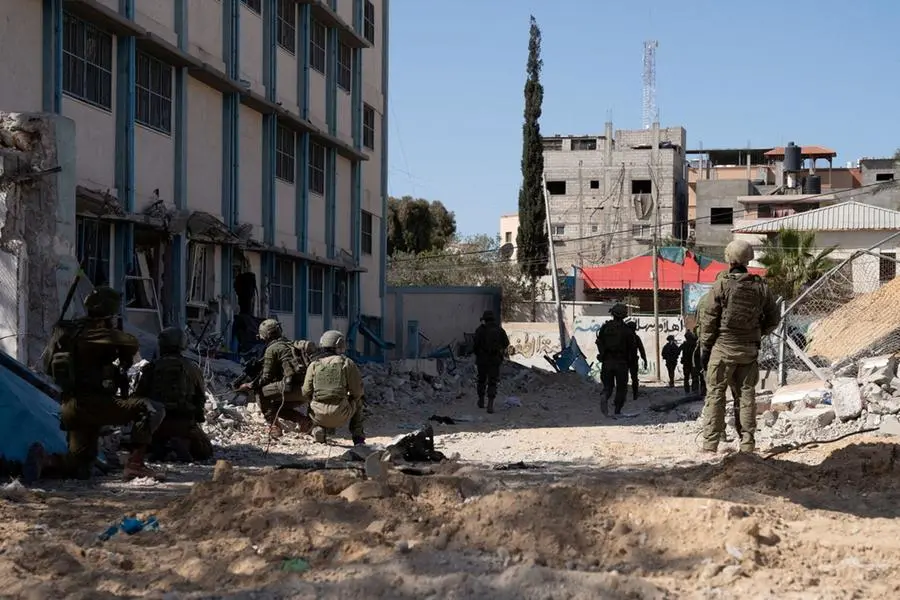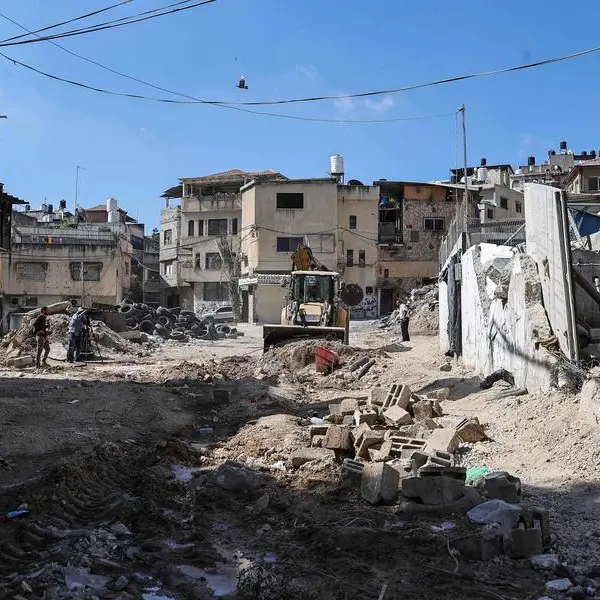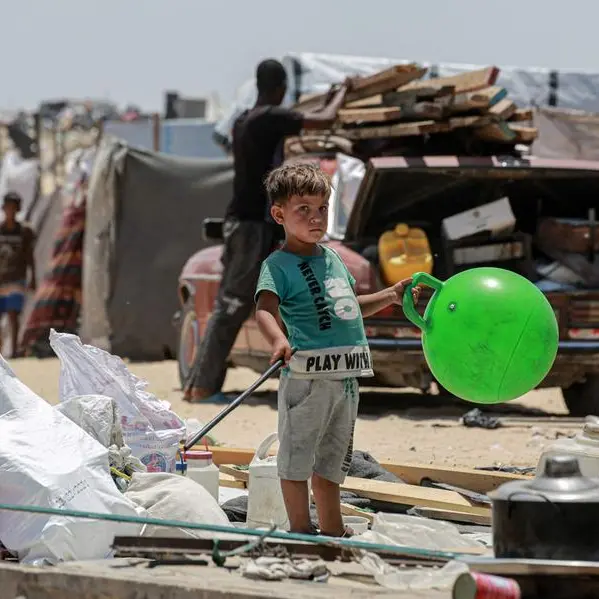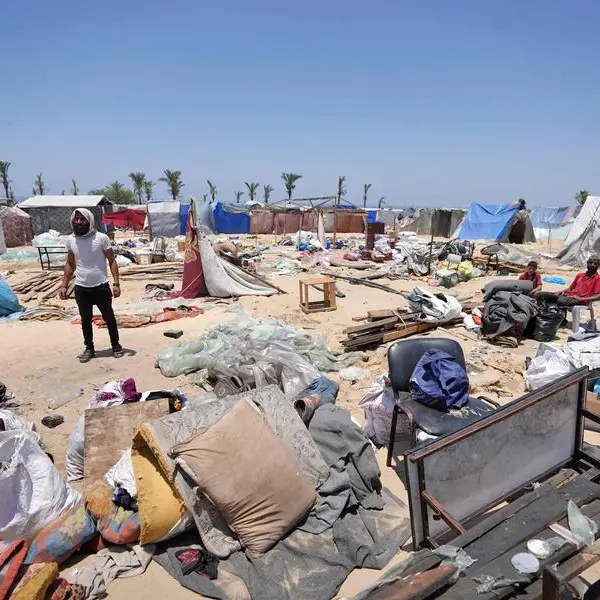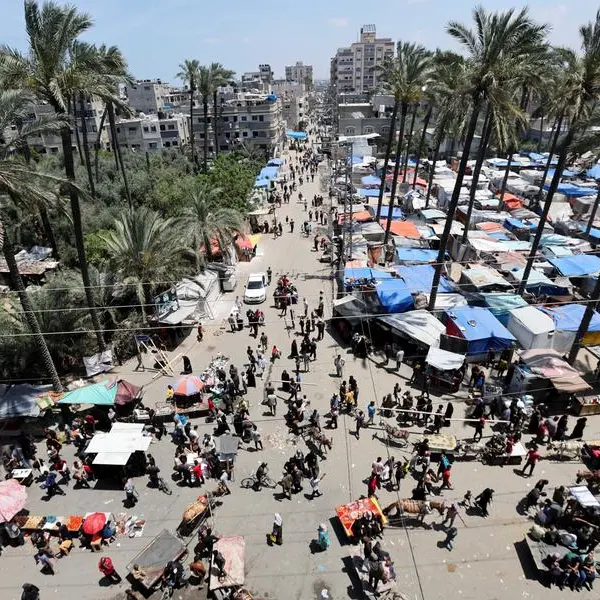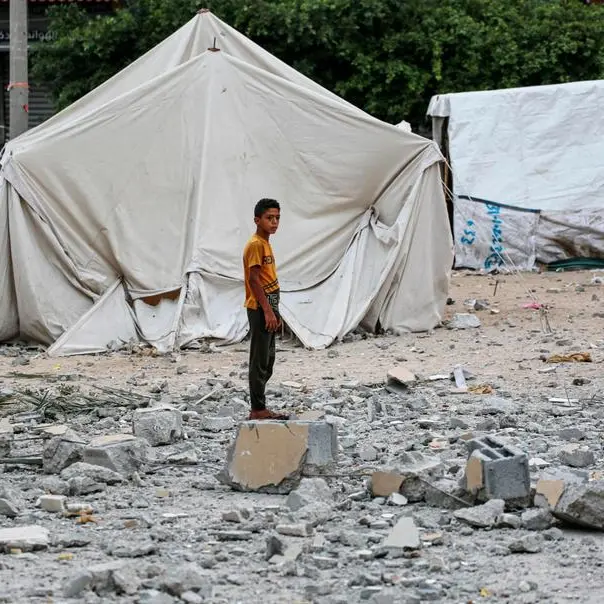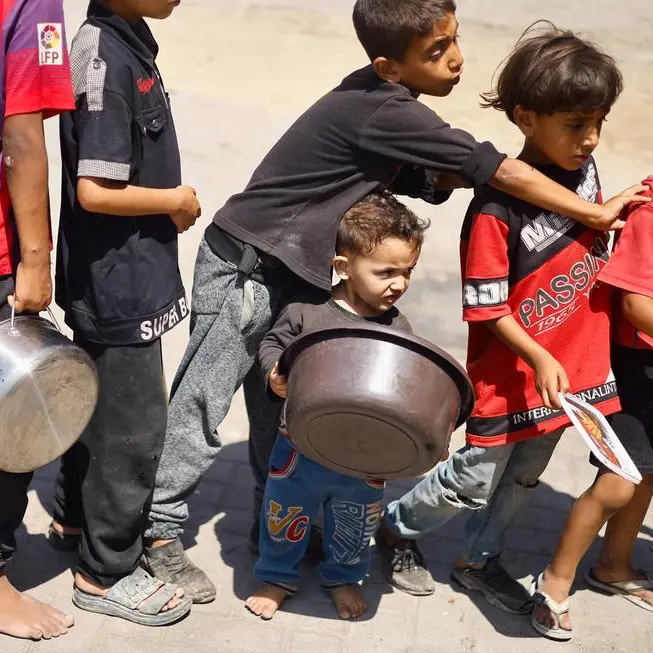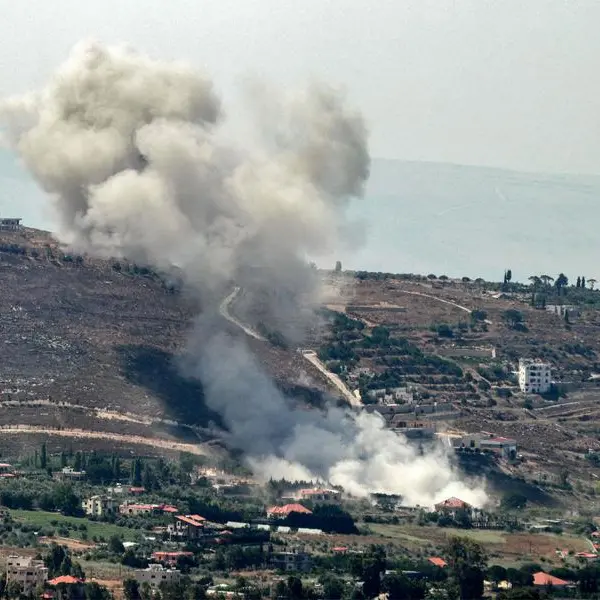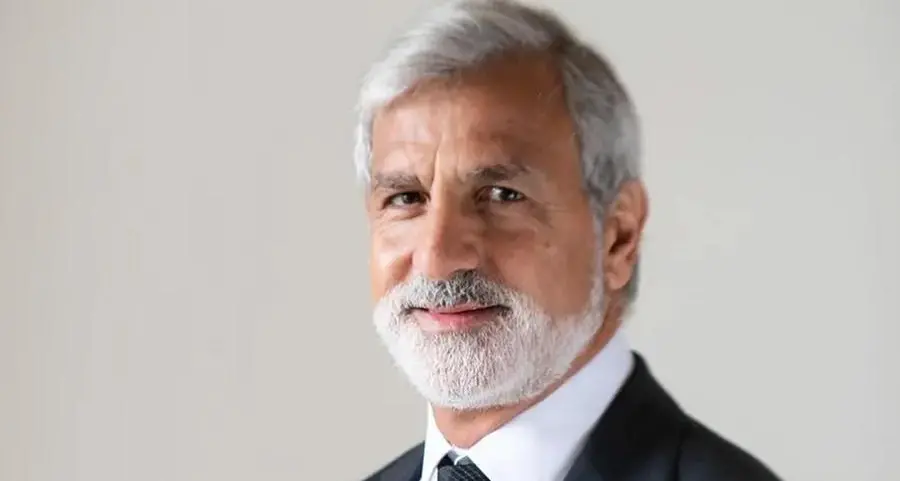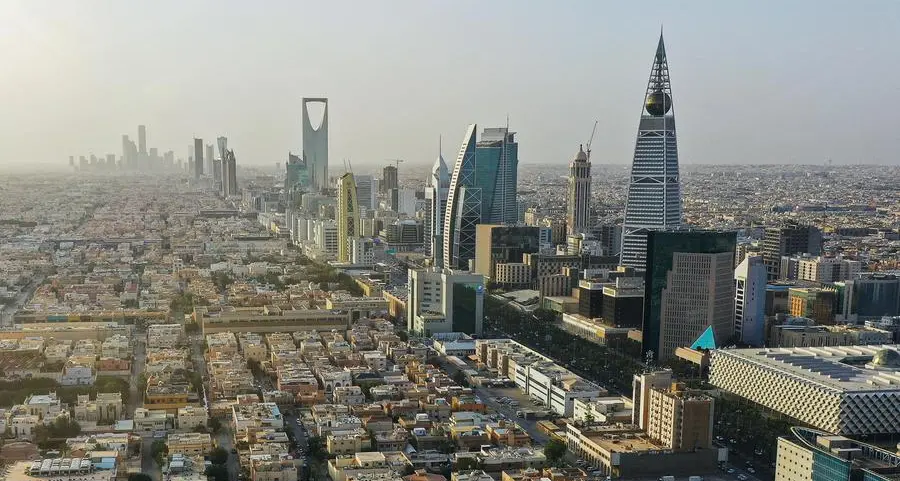PHOTO
RAFAH, Gaza Strip: Gunfire echoed around Palestinian medics, patients and displaced people during what they described as a terrifying and chaotic night evacuation from Gaza's Nasser Hospital after it was stormed by Israeli forces.
Survivors of last week's assault on the second-biggest hospital in Gaza said they then faced a treacherous walk to safety through the dark, passing corpses along the way.
One doctor said a male nurse was detained at an Israeli checkpoint, stripped naked and taken away screaming.
"Smoke was everywhere, it was like doomsday, people running everywhere," said Doctor Ahmed al-Mughraby, head of the plastic surgery department, who fled with his wife and children.
Mughraby, who has found refuge with his family in a shelter near another hospital where he now works, said Israeli forces had ordered everyone to evacuate except patients unable to walk and medics looking after them.
Details of the military assault on Nasser Hospital have been gradually emerging as the people who fled or were evacuated reach Rafah, the last relatively safe place in the Gaza Strip about six miles (10 km) away on the border with Egypt.
Israel described the assault as a precision operation conducted by special forces aimed at recovering the bodies of Israeli hostages. It said there had been no obligation on patients and staff to leave, and efforts were made to ensure the hospital could keep functioning.
But the raid has prompted alarm among aid agencies, and the World Health Organization said the amount of damage was "indescribable".
The WHO, the U.N. health agency, has carried out two evacuations from Nasser Hospital since Thursday but said on Tuesday it was concerned about nearly 150 patients and medics remaining there as fighting continues.
After besieging the hospital, Israeli forces entered it last Thursday and said they had detained hundreds of militants hiding there, with some posing as hospital staff.
Hamas has denied using the hospital, and calls Israel's allegations "lies". The Health Ministry in Gaza has said Israel has detained 70 staff and volunteers working at the facility.
The WHO said the hospital stopped functioning last week after the Israeli siege and raid, and no longer had electricity or running water, with medical waste and garbage creating a breeding ground for disease.
DRONE FIRE, 'AGGRESSIVE DOGS'
Nasser Hospital was the biggest hospital still operating in Gaza more than four months into the war that began when fighters from the Palestinian militant group Hamas raided Israeli towns on Oct. 7, killing 1,200 people and taking 253 hostages, according to Israeli tallies.
Israel's military campaign in Gaza has since killed more than 29,000 Palestinians, health authorities in the Hamas-run enclave say.
Hakeem Salem Hussein Baraka said the Nasser Hospital orthopaedic department where he had been working as a volunteer had been destroyed, and that he saw a patient cut in two by an explosion.
Baraka said a "quadcopter" drone had fired at medical staff taking a break between shifts and "aggressive" dogs with cameras placed round their necks by Israel's military had been roaming the hospital.
The Israeli military said its forces had fought "complex battles" before entering the hospital compound and came under rocket fire from fighters barricaded inside the hospital. It said troops found large quantities of weapons and vehicles linked to the Oct. 7 attack.
"We gave people an opportunity to evacuate before we entered the hospital," Colonel Moshe Tetro told a news briefing. Asked whether there was any gunfire or combat within the hospital, he said: "No".
As Palestinians left the hospital before dawn, some had to wade through sewage, said Rasmeya Saleem Abu Jamoos, a dialysis patient who fled with her blind husband, Abu Jamoos.
He was among people detained at a military checkpoint after leaving the hospital, she said.
The doctor, Mughraby, said his ward had been hit by Israeli fire and that he believed three patients had been killed in the strike. Reuters was unable to verify this.
He said he and his family had left the hospital with three patients and some staff members but one, a department nurse, was stopped.
"They made him take off all his clothes so he was naked and they took him to detention. I could hear his screams," he said.
Mughraby said those who made it through the checkpoint then had a long walk across a battlefield to reach help. Some were sick or injured.
Baraa Ahmed Abu Mustafa, who was on mismatching crutches, said shots were fired over their heads as they went and there were dead bodies near the hospital entrance.
"I'm injured and for one hour I walked," he said. "It was dangerous and the road was bad."
(Writing by Angus McDowall, Editing by Timothy Heritage)
